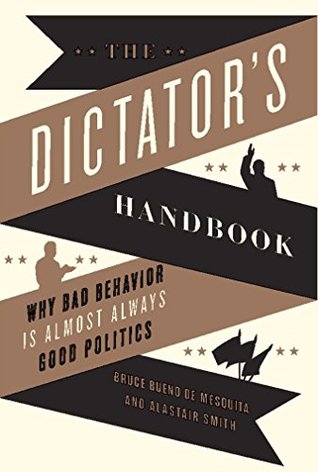More on this book
Community
Kindle Notes & Highlights
The big problem with democratizing overseas continues to lie with we, the people. In most cases we seem to prefer that foreign nations do what we want, not what they want. However, if our interests align then successful democratization is more likely.
The postwar success stories fit this category well. Generally, the people of West Germany and Japan preferred what the United States wanted to the vision expounded by the Soviet Union. Creating powerful states that wanted to resist communism and would try hard was in the US interest.
Sun Tzu exerted a lasting influence on the study of war precisely because his recommendations are the right recommendations for leaders, like monarchs and autocrats, who rule based on a small coalition. The Weinberger Doctrine—like its more recent replacement, the Powell Doctrine—exerts influence over American security policy precisely because it recommends the most appropriate actions for leaders who are beholden to a large coalition.
A man always has two reasons for doing anything: a good reason and the real reason. —J. P. MORGAN
From the beginning we said we would focus on what is rather than what ought to be. Now we need to talk a bit about what ought to be.
If we have learned anything in the preceding pages it is to be suspicious of people’s motives. Appeals to ideological principles and rights are generally a cover.
Leaders, given their druthers,
That’s why so much of humanity for so much of human history has been governed by petty despots who steal from the poor to enrich the rich.
Remember Saddam Hussein’s videotaped takeover: at the outset everyone in the audience was terrified. At the end, those still sitting in the auditorium were thrilled. They knew they had survived to collect their rewards for another day.
Members of a small coalition live in luxurious, but constant, fear: make the coalition smaller, as their leader wants, and they may be out; make the coalition bigger and their special privileges diminish.
The regulations they imposed on corporate governance may have played well with voters, many of whom had little stake in many of the companies that were harmed by the regulations, but they have not made corporate governance better.
Yale law professor Roberto Romano shows that Sarbanes-Oxley did not do what it was “supposed” to do and often made things worse.
As the rules to rule by lead us to expect, states in which leaders required support from a larger proportion of the population developed faster.
This is the straightforward consequence of easy citizenship and, with it, an expanded winning coalition that makes for better governance.
With US aid waning, Mubarak needed tourist revenue more and more and so he showed a modicum of restraint. No such restraint was seen in Libya, where oil dollars provided Qaddafi with ample funds to buy mercenary soldiers who did not hesitate to slaughter rebels
In looking for places that may be good targets for democratization, it is probably a good idea to look to places that rely on tourists for a big chunk of their economy,
Democratization does not require a leader to be benevolent; such leaders are hard to come by, and often misguided. Rawlings was a “reluctant democrat,” but he became a democrat nevertheless. Economic need is a far more reliable path to empowering the people. Foreign aid all too often eases the financial stranglehold on leaders.
Rawlings first went cap in hand looking for an international backer.
Only when that failed did he embark on m...
This highlight has been truncated due to consecutive passage length restrictions.
The English monarchy once had both power and money but it faced severe pressure that could have ended, as in so many other places, with the erstwhile royal family having neither power nor money.
Democracy overseas is a great thing for us if, and only if, the people of a democratizing nation happen to want policies that we like. When a foreign people are aligned against our best interest, our best chance of getting what we want is to keep them under the yoke of an oppressor who is willing to do what we, the people, want.
It is worth noting that Turkey has shown robust growth over the last few years, as seen by comparing these figures with the more contemporaneous ones used in chapter 6. 11 Bruce Bueno de Mesquita and Alastair Smith, “A Political Economy of Aid,” International Organization 63 (Spring 2009): 309–40; and Bruce Bueno de Mesquita and Alastair Smith, “Foreign Aid and Policy Concessions,” Journal of Conflict Resolution 51, no. 2 (2007): 251–284.


